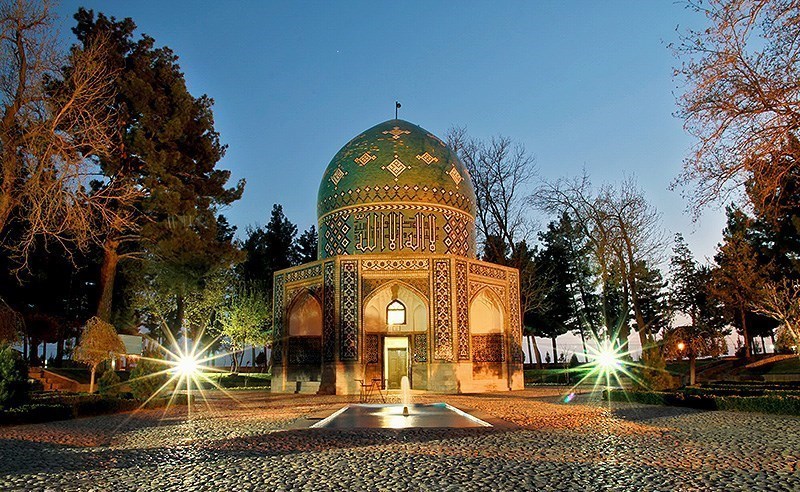ID :
529063
Sun, 04/14/2019 - 12:46
Auther :
Shortlink :
https://oananews.org/index.php//node/529063
The shortlink copeid
Iran marks national day of Attar

Tehran, April 14, IRNA – Iran on Sunday marked national day of Attar, 12th-century great Iranian poet with global reputation.
Iran's history, culture and literature is intertwined by the names of numerous great figures and intellectuals who have made major contribution to civilization of Iran with effective role in creating civilization of the entire international community.
Abu Hamid Farid ud-Din Muhammed bin Abu Bakr İbrahim of Nishabur is well known to Iranians and people from other nations as well. Attar, however, is a pen name of the same person that is fully known in Iran and of has fairly reputation all around the world.
Attar was a 12-centruy poet in the northeastern ancient city of Neyshabur (or Nishabur), currently a city in the Iranian Province of Khorasan-e Razavi. His mausoleum has rendered beauty to the city with turquoise tomb, a tourist attraction in Iran.
Attar (Apothecarist) was also a renowned figure in medicine and pharmaceuticals of his time; that's the reason of appellation. But he is now known for his literary works, on top of which is Manteq al-Tayr, or The Conference of the Birds. The book is a long epic poem that symbolized birds of various kinds each as human moral behaviors. Throughout the story, Attar has highlighted ethical lessons via metaphors and other literary techniques and figures of speech.
In addition to the above mentioned masterpiece, the famous Iranian poet has other works, including Pand-Nama, which is the first work of Attar being translated into other languages. Attar, is also known as a Sufi, has devoted his only prose work, Taḏkerat al-awlia, to biographies of classical Sufis.
Other prominent poetic works of the Iranian poet include Khosrow-nameh, Ilahi-Nama, Khosrow-nama, and Divan. Attar has been named as the master by some other Persian Sufis and poetes. Jalāl ad-Dīn Muhammad Rūmī, for instance, has called him the 'spirit' with himself the 'shadow'.
The name of Attar went beyond borders of Iran and Persian-Arabic speaking communities when his works were translated into other languages. Antoine Isaac Silvestre de Sac, a French linguist and Orientalist was among the first scholars who translated Attar's works. A.J. Arberry, Baron Eric Hermelin and Gabriel GaiTelin are just a few to name. There have been also other non-Iranian intellectuals who have commented on Attar's works.
The prominent Argentine poet, essayist, and short-story writer, Jorge Luis Borges, has compared Attar's The Conference of the Birds with the Divine Comedy of Dante. “That anyone has ever been able to surpass one of the great figures of the Divine Comedy seems incredible, and rightly so,' he says in his Nine Essays on Dante, adding that 'nevertheless, the feat has occurred.”
The poet has been valued by Iranians throughout the history. In contemporary Iran, April 14 is designated as Attar's National Day in the Persian calendar to mark the contribution his works have made to the Persian literature.
This year, too, the day is being commemorated in recognition of Attar's works and personalities. Neyshabur, 125 km west Mashad, the home town of the great poet, is hosting a conference with attendees from across the country.
In an official message to the conference, the Iranian Minister of Culture Abbas Salehi said that 'Attar has a precious gem in his thoughts that still has many buyers despite the long time that has passed since his time and the rise of technologies.'
The gem is the spirituality, approaching the world in a global humane way far from meanness, combined with toleration, he said.
Follow us on Twitter @IrnaEnglish





